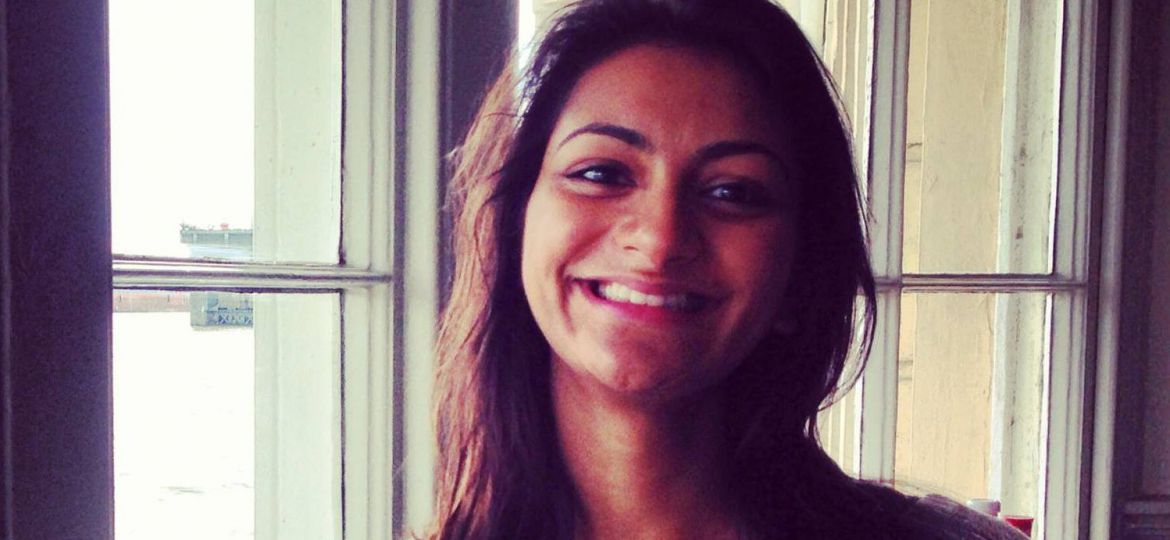
A lot of research concludes that globally, young people aren’t learning enough about sexuality, and that they would like to learn more. My own PhD research will probably conclude something similar, at least in part. But I thought I would take this idea as the starting point for my post, rather than the conclusion – what is it like to actually do research with young people who want to learn more about sexuality? This post reflects on two incidents when students asked me and my research assistant for sexuality-related advice, during the course of my PhD fieldwork with Grade 11 students (aged 15 – 17) in three co-educational Delhi secondary schools. All the students referred to in this post have been anonymised.
“Nobody talks to us about sex, nobody! Like, we just discuss in our group that ‘this could happen, we heard this’. But no elder person talks to us about all this.” (Rani, Grade 11)
Rani made this statement during a paired interview which I carried out with her and her friend Mala. While aware that I was indeed an ‘older person’ who could talk to her about sex, I was very conscious of the fact that I had no training in providing guidance on sexuality-related issues; how was I supposed to respond? A few days later, I met up with Rani and Mala again. We sat on a bench in a quiet corner of the school grounds during recess, and referring back to Rani’s comment, I told them they could ask me any questions they had about sex if they wanted to, with the caveat that I wasn’t an expert, and would just be speaking from my personal knowledge and experience. After a brief pause, Rani and Mala exchanged glances, and then Mala said: “Ma’am, are condoms reliable? Because on ‘Gumrah’ they showed that they don’t always work…”
After my own brief moment of reflection, I told Mala that as far as I knew, condoms are around 95% reliable, and when they don’t work it’s usually because they haven’t been put on properly. Occasionally they can split but most of the time they are reliable, I reiterated, but it’s usually the cases when they don’t work that you hear about in the media. The girls nodded and seemed to take this in.
Later, I chatted with my partner about this exchange over Skype. “Did you tell them that if a condom does split, it’s really important to stop having sex as soon as you realise?” he asked. With a growing sense of panic, I realised that I hadn’t told them anything nearly as useful as this. What if one of the girls contracted an STI because of my inadequate advice? Or even worse, became pregnant?
As someone who subscribes wholeheartedly to sex-positive politics, it surprised me how quickly these ‘sex is risky’ messages surfaced and threatened to overwhelm a conversation about sex. The girls had added me on Facebook, and I quickly messaged them with a link to the online version of TARSHI’s Blue Book. I had already told them about this as a useful resource at the end of the fieldwork in 2013, but thought that perhaps it wasn’t a bad idea to share it with them again, particularly since these issues seemed more pertinent to them now. So I messaged them, telling them that The Blue Book would provide more accurate and helpful information on issues relating to sex. They replied thanking me, and said that they would definitely read it. I could only hope that they would.

While I carried out interviews and single-sex Focus Group Discussions (FGDs) with the girls during the research, my research assistant Neeraj did the same with the boys. Neeraj had previous experience of working as a peer educator with The YP Foundation, running comprehensive sexuality education (CSE) workshops with young people and so he had a considerable advantage when confronted with questions about sexuality. In one FGD, the boys at one of the schools had a lively discussion about whether having sex makes men physically weaker. One boy insisted that it did, referring to a scene in the movie ‘Bhaag Milkha Bhaag’, while another insisted that it didn’t – he had seen a documentary which showed that men in fact get stronger after sex. As this was a discussion which reflected the boys’ understandings of sexuality, and which was pertinent to the research, Neeraj did not intervene at this point.
However, when we interviewed students individually later on, Neeraj and I made sure to ask all the students whether they had any questions for us once the interview was over. It was at this point that Lego, one of the boys who had been in the earlier FGD, suggested that Neeraj had been the one to tell them that sex is ‘unhealthy’ if you do it ‘too much’. Neeraj, unsurprisingly, was somewhat taken aback by this as he had said nothing of the kind! He reassured Lego that sex does not make you more tired than other kinds of physical activity, and it certainly doesn’t lead to any kind of physical weakness. Lego seemed to accept this, and went on to ask similar questions to clear up some of his concerns about masturbation.
I think these examples reflect some of the complexities of conducting research on sexuality with young people, but also highlight the importance of giving young people advice on issues relating to sex and sexuality. In my conversation with Rani and Mala about condoms, I was overwhelmed with the sense of responsibility I felt when providing them with contraceptive advice, and the subsequent anxieties and concerns for their well being that arose from this sense of responsibility. Meanwhile, Neeraj’s experiences with Lego highlight that the process of ‘giving advice’ (or not, as the case may be) is not just one-sided– the ‘receiving’ of advice by young people is an active process, in which they construct their own meanings based on existing understandings and beliefs.
My experiences also add a personal dimension to my understanding of another oft-reported finding in relation to school-based CSE (Comprehensive Sexuality Education) – that teachers are too embarrassed to talk to young people about sexuality. Even as someone who is entirely committed to providing young people with CSE, I found that the process of being asked for and giving advice on sexuality-related issues was loaded with a sense of responsibility and anxiety. What happens for teachers and other adults who are uncomfortable even acknowledging the idea that young people are sexual beings? Or those who firmly believe that ‘legitimate’ sexuality is only found within the confines of heterosexual (and ideally procreative) marriage? These reflections leave me with a deeper understanding of the enormity of the task of providing CSE in schools. However, I do believe that just starting such conversations with young people is crucial, and I hope that the conversations my research assistant and I had with students were useful to them on some level – even if only by encouraging them to have more open conversations about sexuality in the future.
Pic Source: ‘Questions’ by Valerie Everette/ CC BY 2.0
Featured Image Credit: Padmini Iyer